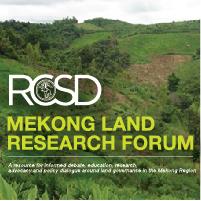Resource information
In Myanmar, movements for gender justice strive to foster personal and collective security, vibrant livelihoods, and political engagement during a period of rapid and uncertain transition. This article draws from the experience of the Gender Equality Network (GEN), a coalition of over 100 organisations in Myanmar. It examines three cases in which GEN sought to document existing forms of resilience and expand these mechanisms through national-level advocacy. The first describes current attempts to publicise, and eventually eliminate, violence against women (VAW). VAW is a fundamental threat to personal safety, but also to the principle of societal accountability – that is, the extent to which society upholds the interests and rights of women and girls. The second focuses on women’s (lack of) access to natural resources and economic decision-making, drawing on gender-focused input into the National Land Use Policy. Finally, we examine the impacts of conflict on women’s resilience, and women’s increasing participation in the peace process. In all three cases, effective mobilisation and networking not only increased female political voice, but also enabled creation of a more resilient democracy by modelling effective policy, research, advocacy, and communication strategies.


